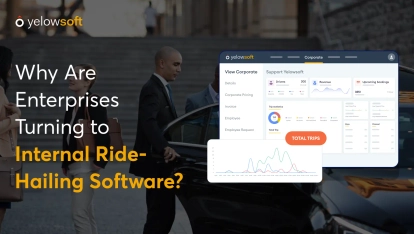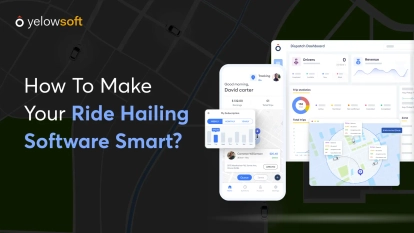The region of North Africa consists of countries like Morocco, Sudan, Egypt, Libya, Algeria, and Tunisia. In the past few years, this region has witnessed many disruptions in the ride-hailing industry. The biggest disruption perhaps was the Uber and Careem merger which we’ll discuss in detail later.

First, let’s get a glimpse of a few ride-hailing stats of the region.
-
The total amount of revenue for the ride-hailing and taxi segment for the North African region amounts to a total of US$1,114m in the year 2020.
-
This revenue is estimated to exhibit annual growth at a rate (CAGR 2020-2024) of 20.2%. This growth will result in a market volume of a mammoth US$2,326m by the year 2024.
-
The user penetration is also set to hit the 8.3% mark in the year 2024 which is currently at 7.0% in the year 2020.
-
Currently, the average revenue per user (APRU) is US$67.08.
These stats give us a fair idea of how big the ride-hailing industry is in North Africa. To understand the current scenario of ride-hailing market of the North African region, we need to look at Egypt, where ride-hailing competition and tech-enabled transport market is getting tougher as rivals including taxi behemoths like Uber and the local taxi players like vie are fighting fiercely to get their slice of North Africa’s biggest taxi market.
If you believe the operators then there’s enough room for everyone to grow. Egypt’s population is growing at a rapid pace and will soon touch the mark of 100 million. So, according to them various modes transports like taxis, tuk-tuks, minibuses, shuttle passenger vehicle, and motorbikes has a bright future ahead of them.
But when it comes to the big players, only two names come to mind and they are of Uber and Careem. However, in recent past en event just changed the dynamics of the taxi market in this region.
This event was of Uber-Careem merger. Uber acquired Careem for a mammoth amount of $3.1 billion in March 2019. This deal was a big highlight and drew the attention of many including the competition watchdog of Egypt which is known as the Egyptian Competition Authority (ECA).
However, ECA did show a green light to this deal with a few small caveats. The Egyptian Competition Authority approved this mammoth deal of USD 3.1 billion between Uber and Careem by just imposing a few conditions that are designed by the watchdog to ensure the protection of rider’s, driver’s, and investor’s right, said the competition watchdog in a press release.
ECA’s terms for Uber-Careem merger
According to the ECA, both the parties Uber and Careem have accepted their terms which will be in effect for the initial two years after the transaction. These terms include:
Customer protection
ECA kept a cap on the annual price hikes for both Careem and UberX at 10% nationwide which won’t include hikes that are linked to cost-push inflation. Moreover, they have also imposed a ceiling on the surge pricing at 2.5X of the regular fare. ECA also ensured that none of the brands could have more than 30% of annual trips subjected to the surge pricing.
Driver protection
Uber is bound to maintain the driver utilization rate within the range of 60-80% for both the platforms. Moreover, Uber also agreed to restrict its cut of UberX and Careem Go rides at 22.5% and 25%.
Market entry
As per the terms, Uber will have to terminate all the exclusivity agreements and intermediaries with the third-party partners to reduce the already risen barriers to enter into the ride-hailing market. In addition to that, they will also require changing their Careem’s logo and other marketing materials to explicitly display their link with Uber to decrease customer confusion. Moreover, Uber would also require to provide mapping data and aggregated data from trips to all the new market entrants and potential competitors.
Adjacent markets
None of the brands will be allowed to price bus-hailing services or get involved in pure bundling, in which a customer is obliged to buy more than one product or service at once.
Uber’s response
Reuters quoted a spokesperson from Uber who said that they welcome the decision and will be joining hands to “deliver exceptional outcomes for riders, drivers, and cities across Egypt.” Bloomberg.
The ECA’s decision has also got backing from many other players in the business. The prime example of it is of the Swyl, a mass-transit app whose CEO said that “The ECA’s decision will help provide high-quality services to customers at competitive prices”.
What’s the nature of this regulation: Permanent or temporary?
As of now, these regulations are will be only for the initial two years taking effect once the merger starts. However, they can be renewed for another two-year period depending on Uber’s compliance.
However, the total span shouldn’t cross the five-year mark. It’s also important to note that the authority can lift regulations if market circumstances change or a new player enters the market and grabs at least 20% alone or 30% in a collective effort.
ECA’s reasoning behind this step
ECA believes that Uber-Careem merger could be anti-competitive as it can raise the already high barriers to entry and might also lengthen the time that ride-hailing companies take to reach profitability. In such a case, it might result in declining service quality, more price control, and many more.
What’s the status of the merger in other countries?
Regulators in other countries have followed ECA’s footsteps. For example, Qatar has blocked the merger of these two businesses. However, it has got the green light from the regulators of Jordan and UAE.
Sudan’s ride-sharing revolution
In the recent past, ride-sharing applications have played a significant role in improving mobility in Sudan by revolutionizing transportation. However, this has come with some legal complications over the relationship between drivers and platform owners.
A serious problem of labour rights, data privacy, and algorithm bias has come up in Sudan’s ride-sharing industry which needs to be addressed soon for the sustainability of ride-sharing in the country.
In the past few years, internet penetration in Sudan has boomed to approximate 30%. This spike in internet users has helped the country’s ride-sharing industry to take off.
Mishwar, Tirhal, and lemon are a few of the major ride-hailing platforms that dominate the market. Dubai based Careem ended its operation in Sudan after Uber’s acquisition. Tarha is a startup that has based its model on the idea of ride-sharing but later also started to offer car-pooling services.
Ride-sharing has caused some serious rivalries among the taxi drivers as they engage themselves in a cut-throat competition to secure their riders.
In December 2018, the Transport Ministry along with the General Union of Transport Workers released a statement in favour of suspending all the ride-sharing apps.
According to the secretary-general of union, Yosif Jamaa, these ride-sharing apps usually get around the Emergency Transport (ET) law. “The ET law isn’t permanent and not to be used all the time, in addition to system flaws, technical issues, and other issues that have no special legislation to address them,” Jamaa said.
Cluster of challenges
As of now, there are two contractual agreements that regulate the ride-sharing industry. One of them is the Emergency Transportation Permit, which is simply a permit that is issued by the state. Technically, this permit is only used in emergencies. However, every ride-sharing companies are required to request this permit for their registration.
There are also some other terms and conditions that ride-sharing drivers must sign whenever they apply to work for any of the ride-sharing companies. These agreements are responsible for organizing and governing the relationship between platform owners and drivers.
These contractual agreements do cover the basic relationship between the drivers, platform owners, and the state; however, they terribly fail at addressing labor rights.
Read More: Top 5 challenges faced by taxi associations due to Uber, Lyft, and Ola.
Let’s take an example to understand this better. These agreements fail to recognize driver’s nature of employment, i.e. whether they are full-time employees or not. The vague categorization of “contractors” and “drivers” allows companies to get rid of many responsibilities like health insurance. The current agreements are so vague that it doesn’t make it anything clear about driver’s responsibilities to pay their taxes from their work as the ride-hailing driver.
Another challenge is of algorithm bias. Many platforms are not transparent about the algorithm that they use to set rates as well as organize traffic. These algorithms are said to show some bias for a particular region by matching more drivers from that region. That’s why it’s important to establish transparency and get drivers to know about the algorithm which used to set rates.
Data privacy is another concern that needs to be addressed. It’s important that the owners of the platform should protect data like driver’s names, car numbers, addresses, etc. However, the agreement has no clause that defines that particular responsibility well. There are some apps like lemon that has included a link to their privacy policy; however, it only leads to their webpage.
The data breach of trihal taxi got overshadowed by the revolution of Sudan that started in 2019. A hacked with the username “Mr. Sniper” on Twitter tweeted that the leaked data consisted of live locations, order histories, and registration data of customers and drivers. As per the Rogue media, further investigation of this leaked data revealed names of drivers, car model, license plate, license information, and trip logs.
Organizing to bring a change
Until now, there’s no official union of ride-sharing drivers that can voice their concerns and advocate their rights against the platforms and government policies. The right to unionize is also vague and it doesn’t make clear if drivers can collectively bargain about their fair contracts, working conditions, wages, and many other issues.
Read More: Challenges faced by driver associations all over the world.
Drivers have found a new way to discuss their issues through social media. All the drivers meet on Facebook groups to discuss a wide array of problems faced by them. However, there’s still no concrete formal organization that can solve drivers’ issues. Even Uber had to look closely to put an end to all these issues.
Even after all the issues, the general opinion of Sudanese people is that the ride-hailing industry has boosted the Sudanese economy by reducing transportation issues. However, to ensure the development is sustainable it’s important to address all the issues pertaining to the rights of all the stakeholders.
Conclusion
North African region has witnessed many disruptions in the ride-hailing industry in the recent few years. The Uber-Careem deal is perhaps the biggest of them which single-handedly changed the landscape of the ride-hailing region. Experts have doubt whether this deal would strengthen Uber’s position in the region or will it create opportunities for local players to jump in the competition.
The deal has also faced extreme scrutiny from the watchdogs of various countries. Another issue that the ride-hailing industry of this region face is the lack of transparency. This leads to dicy relationships and hence friction between drivers and ride-hailing companies. Probably in the coming years, we might see new driver unions voicing their issues and thus establishing transparency.







